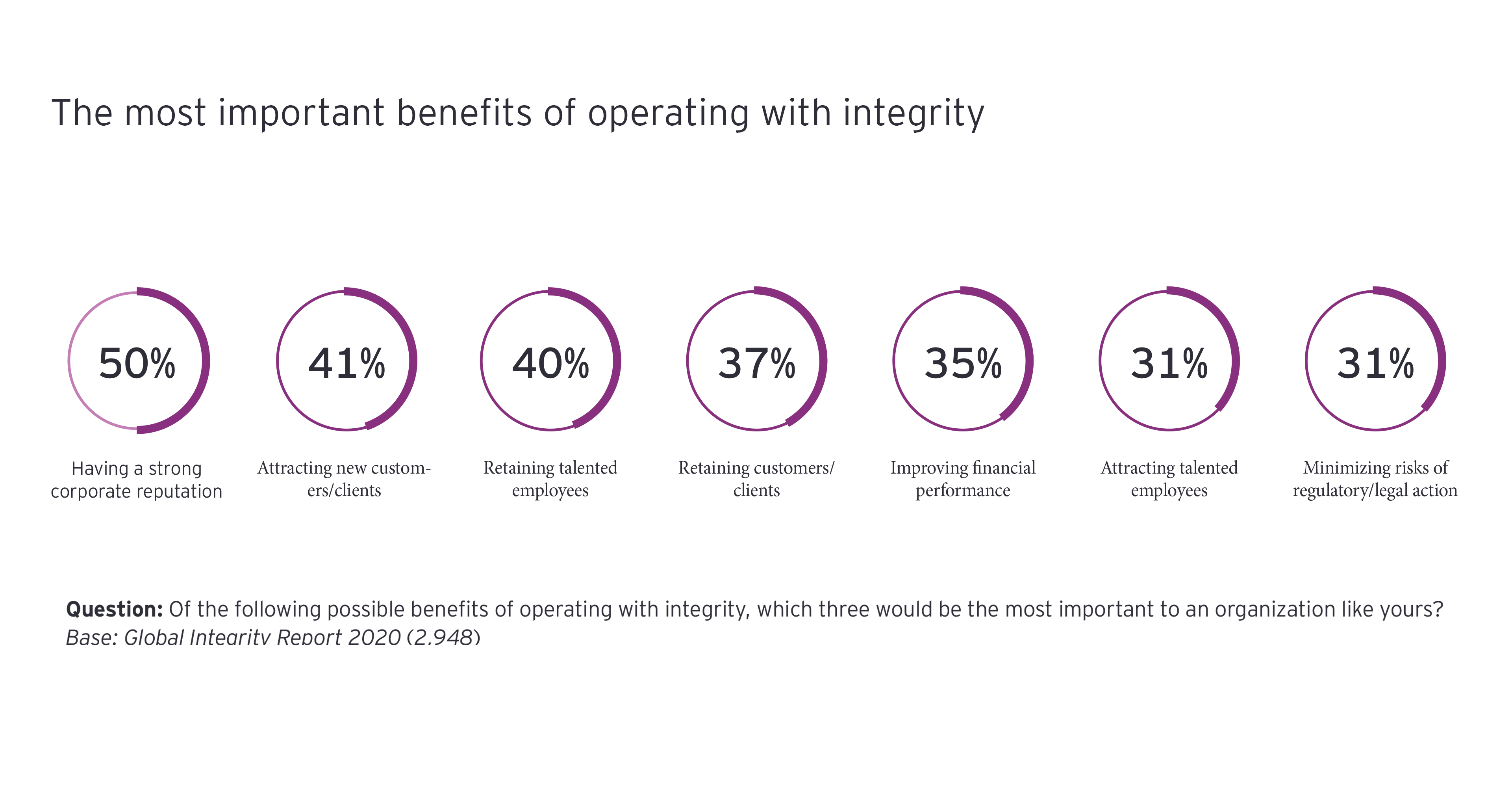The level of scrutiny on business from wider society has intensified. Decisions taken by businesses and governments in crisis mode at the height of the pandemic will be judged over the coming months and years. Acting with integrity is now more important than ever. But when the challenges are greater, the risks are as well. How can companies navigate such a landscape with so many potential financial and reputational pitfalls?
Moment of truth: corporate integrity in turbulent times
The vast majority of respondents surveyed at the height of the pandemic believe that COVID-19 poses a risk to ethical business conduct at their organization. Indeed, significant numbers of employees remain willing to act unethically for personal financial gain, and the global pandemic is only exacerbating this by increasing the incentives and opening new avenues for them to do so.
Even before the pandemic took hold, businesses faced significant pressures. Trade wars, sanctions and export controls, fraud and political upheaval all weighed heavily on companies. Now, aside from worsening market conditions, respondents believe the top COVID-19 risks to ethical conduct are:
- Disruption to traditional working patterns, such as the increase in remote working (33%)
- Disruption to supply chains (28%)
- Reduction in employee benefits and compensation (24%)
- Reduction in staff levels (22%)
Our research also shows a concerning disparity as to the perceptions of ethical behavior at different levels of seniority within organizations. The majority (53%) of junior employees have doubts that management abides by the relevant laws, codes of conduct and industry regulations — yet, in contrast, 58% of board members are very confident that they play by the rules. Meanwhile, 13% of all respondents would be prepared to ignore unethical conduct by third parties in order to boost their career or pay, and that figure rises to 20% among board members.
Greater pressures — and greater scrutiny
The economic fallout of COVID-19 is likely to create a perfect storm for fraud, exposing a decade’s worth of corporate fraud schemes, while giving rise to new ones, The Economist says.1
In addition, society’s views have changed dramatically since the 2007–08 global financial crisis, putting companies under more pressure than ever to do good for people and the planet, through environmental, social and governance (ESG) initiatives. This societal change extends to greater scrutiny of both companies and the conduct of their people. Meanwhile, the rise of social media has given a platform to discuss integrity issues in a much more open way – and consumers are taking notice.
In a post-COVID-19 world, companies will need to work hard to rebuild their businesses and deal with existing threats, as well as new ones. For example, as companies rebuild their supply chains, they must pay careful attention to the business and compliance implications of changing suppliers, logistics routes and sourcing. Sanction infractions in the heat of the pandemic could come back to create regulatory, financial, operational and reputational consequences.
The solution: integrity
But amid these major challenges, companies can protect themselves by putting an “integrity agenda” at the heart of their response to the crisis and the subsequent rebuild. “Corporate integrity is not ‘greenwashing’ or being seen to be doing the right thing for the press,” says Tony Jordan, EY Americas Forensic & Integrity Services Leader. “Integrity is behaving in a way that generates long-term value to support the communities that organizations serve.”
Developing an integrity agenda doesn’t just protect companies by avoiding fines and penalties. It can also help them thrive financially and deliver long-term value to their stakeholders. For example, Ethisphere research found that the world’s most ethical companies outperformed the US large-cap sector by 13.5% over a five-year period.2
We are already seeing early signs of this as more than 70% of ESG funds across all asset classes performed better than their counterparts during the first four months of 2020. And companies that foster strong partnerships with suppliers, employees, investors, regulators and governments based on trust have more robust and agile operations that can adapt quickly as events unfold, The Wall Street Journal reported in May 2020.3


